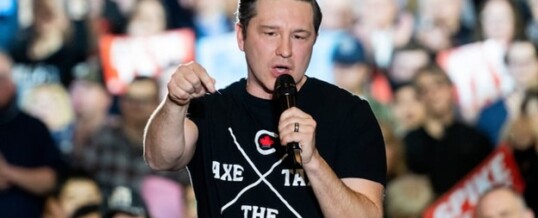
McLeod Group blog by Diana Rivington, April 22, 2025
Ripper: The Making of Pierre Poilievre is a riveting read, and not just for policy nerds like me. The book’s author, lawyer and historian Mark Bourrie, chose the title after reading a column by David Brooks in the New York Times that identified Western politicians as either rippers or weavers. Weavers try to bring people together and try to fix things. Whether from the Right or the Left, Rippers see politics as war and they don’t care about the destruction that’s caused as they fight for power.
Oddly, reading this book made me think about Susan Whelan, Canada’s former Minister for International Cooperation. As an employee of the late and somewhat lamented Canadian International Development Agency (CIDA), I worked for her office when she was appointed by Prime Minister Jean Chrétien in 2002.
From childhood, Whelan was very interested in politics, particularly agricultural issues, and had travelled with her father Eugene Whelan, Canada’s long-serving Minister of Agriculture, to every agricultural fair across Canada. But she had little interest in other topics. Indeed, her international travel prior to CIDA had been limited to a holiday at an all-inclusive resort in Mexico and a few cross-border trips to the Detroit area because she grew up in Windsor.
As we prepared the Minister’s first-ever visit to New York, for meetings at UN Headquarters, UNICEF offered to arrange for meetings and photo ops with UNICEF Goodwill Ambassadors, such as Roger Moore, who had played James Bond in seven films, or Anatoly Karpov, the former world chess champion. Whelan had heard of neither of them.
So why did I think of Susan Whalen after reading Ripper?Like Whelan, Pierre Poilievre has visited many small towns and every city across Canada in his continual campaigning. And if he has demonstrated any interest or curiosity about the world except in relation to Canadian politics, I could not find it, even though he studied international relations.
His views, like Whelan in her time, are very parochial. Once a delegate to the World Economic Forum in Davos and a member of the Harper government that not only attended but made major policy announcements at Davos, he now denounces it as a cabal of global financial elites and insists that if he becomes PM, his ministers will never go to Davos. Uncomfortable with diversity, equality and inclusion initiatives, he sees Mark Carney’s approach as a “globalist ideology”, while others view Carney’s first acts as PM as alliance building through international and multilateral relations.
Bourrie describes Poilievre as a person who has fought against social/progressive activism since his teens. Poilievre was comfortable denouncing church and civil society groups that engaged in social justice activities. He certainly supported the Harper’s government denial in 2010 of CIDA funding to Kairos, the consortium of 11 churches and religious organizations. That chapter should serve as a warning to any civil society group or academic institution that seeks federal support to redress longstanding inequities (or otherwise being “woke”) under a Poilievre government.
According to Bourrie, both Trump and Poilievre see politics as a “zero-sum game” and therefore play fast and loose with facts. Their name calling is targeted to destabilize and denounce, not build. So Poilievre, who has served in Cabinet and knows better, has described Canada’s foreign aid program as tax dollars given “to dictators, terrorists and useless global bureaucracies”. In February, he promised to divert the aid budget to building up military security in Nunavut. In March, he promised that massive cuts to foreign aid would also support investments in infrastructure to support exploitation of Ontario’s Ring of Fire. As well, the Conservative Party website criticizes “sending gender advisors abroad” and calls for the replacement of a “woke culture” by a “warrior culture”.
So, as we head to the ballot boxes, those of us working to strengthen Canada’s contribution to a better world need to consider whether Pierre Poilievre could be a weaver or a ripper. Alas, after reading this book, my view is that he is definitely a ripper.
Diana Rivington, through her long career with the Canadian International Development Agency, made major contributions to CIDA’s Gender Equality policy and programming. Prior to her years with CIDA, she worked with Canadian not-for-profit organizations WUSC, CUSO and Canada World Youth. Photo: Spencer Colby/The Canadian Press.
